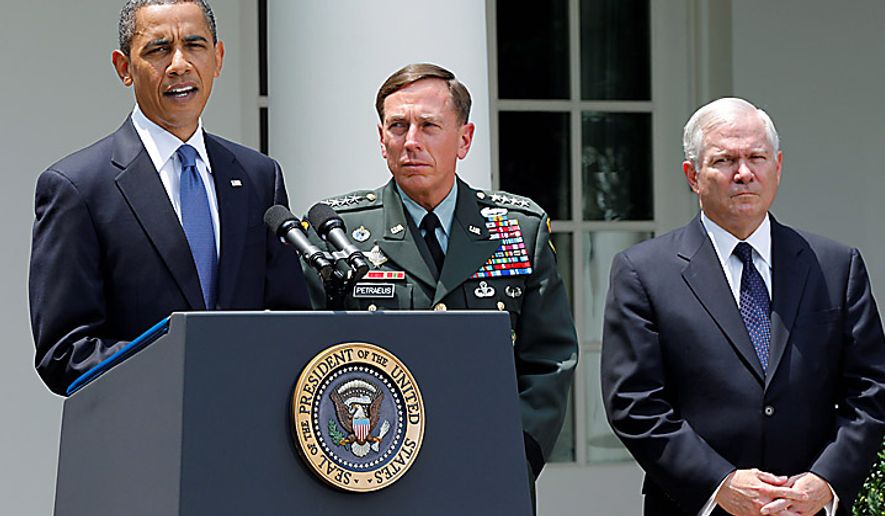Now that President Obama has replaced the top general in Afghanistan, some key senators said Sunday he needs to consider reshuffling his diplomatic leadership there as well.
The questions about the overall leadership of the U.S. effort come at a critical moment for Mr. Obama’s Afghanistan strategy six months into what he said would be an 18-month-long surge, and as the CIA director said fighting there is “harder” than expected.
Speaking on the Sunday talk shows, Senate intelligence committee Chairwoman Dianne Feinstein, a Democrat, and Sen. Lindsey Graham, a Republican and member of the Senate Armed Services Committee, said this is likely Mr. Obama’s last chance to get the strategy in Afghanistan correct and that he must give Gen. David Petraeus, his new commander, the latitude he needs.
“You put the general in, he should make the call. If he can’t work with the ambassador, the ambassador should be changed,” said Sen. Feinstein, California Democrat.
Gen. Petraeus was tapped last week to replace Gen. Stanley McChrystal, who along with his staff had been critical of the civilian leadership including Ambassador Karl W. Eikenberry and Richard C. Holbrooke, the State Department’s envoy to the region.
Gen. McChrystal was a supporter of Mr. Obama’s troop-surge in Afghanistan and appeared to have a working relationship with Afghan President Hamid Karzai, while the two diplomats have a strained relationship with Mr. Karzai.
Mr. Graham and Mrs. Feinstein, speaking on “Fox News Sunday,” said the confusion can end now if Mr. Obama gives Gen. Petraeus control.
“I think we put all our eggs in the Petraeus basket at this point,” Mrs. Feinstein said.
But other lawmakers said at this point the president has a group he has confidence in.
“I think they’ve got a team now that can get the job done,” said Sen. Jack Reed, Rhode Island Democrat and a senior member of the Armed Services Committee. “Now they have to work together.”
Speaking on ABC’s “This Week,” CIA Director Leon Panetta said the U.S. has the right strategy, though he acknowledged “some serious problems” with the country.
“It’s harder, it’s slower than I think anyone anticipated. But at the same time, we are seeing increasing violence,” Mr. Panetta said.
He said the Taliban is “engaged in greater violence” now than when Mr. Obama took office, and said they are stronger now in some ways, but weaker in other ways — including having some of their leadership killed or captured.
• Stephen Dinan can be reached at sdinan@washingtontimes.com.




Please read our comment policy before commenting.